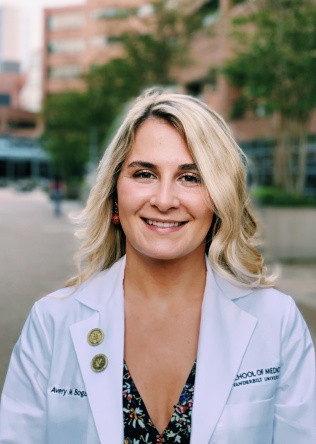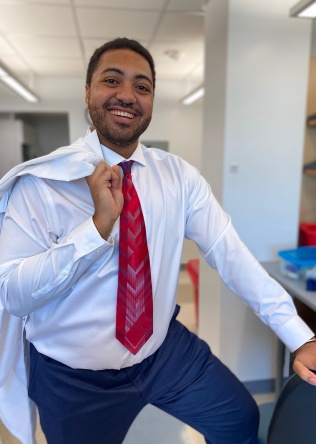Azuah Lucrecia
Gonzalez, B.S.
Molecular Pathology & Immunology Graduate Program
I was born and raised in Boyle Heights, California! I graduated from the University of California, Santa Cruz in 2020 with a degree in Biochemistry and Molecular Biology. During my undergraduate career, I studied bacterial pathogenesis and colonization in the lab of Dr. Victoria Auerbuch-Stone. Since then, I joined the IGP in 2020 and I am now in the laboratory of Amanda Doran MD/PhD in the Department of Pathology, Microbiology, and Immunology.
Preston Research Building
Amanda Doran Lab
In the Doran lab, we broadly study the mechanisms of inflammation resolution, and my research centers around the metabolic reprogramming of macrophages in response to damaging, endogenous stimuli.
azuah.l.gonzalez@vanderbilt.edu







